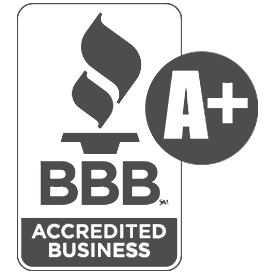First-Time Home Buyer: Are You Financially Ready to Buy a Home?
Buying your first home is a major financial commitment, and it’s essential to ensure that you’re fully prepared before taking the plunge. While the excitement of owning a home is undeniable, it’s important to evaluate whether your finances are in order to avoid potential pitfalls. This guide will walk you through the key financial considerations to help you determine if you're truly ready to become a homeowner.
1.Evaluate Your Credit Health:
Your credit score is a key factor in determining your mortgage eligibility and the interest rate you’ll receive. A good credit score can save you thousands of dollars over the life of your loan.
Steps to Improve Your Credit:
-
Review Your Credit Report: Obtain your credit report from the three major credit bureaus and review it for accuracy.
-
Pay Down Debt: Reducing your credit card balances and paying off loans can boost your score.
-
Limit New Credit Applications: Avoid applying for new credit in the months leading up to your mortgage application.
2.Understand the Costs of Homeownership:
Owning a home involves more than just the mortgage payment. It’s important to consider all the costs associated with homeownership, including property taxes, insurance, and maintenance.
Key Costs to Consider:
-
Property Taxes: These vary by location and can add significantly to your monthly expenses.
-
Homeowners Insurance: Protects your home and belongings, and is usually required by lenders.
-
Maintenance and Repairs: Owning a home means taking on the responsibility for all maintenance and repairs, which can be costly.
3.Determine Your Budget:
Before you start house hunting, it’s crucial to determine how much you can afford. This involves calculating your monthly budget, including all homeownership costs.
How to Set Your Budget:
-
Calculate Your Maximum Loan Amount: Use a mortgage calculator to estimate how much you can borrow based on your income and debts.
-
Consider Your Down Payment: A larger down payment reduces the amount you need to borrow and can eliminate the need for mortgage insurance.
-
Account for Additional Costs: Include property taxes, insurance, and maintenance in your budget to get a realistic picture of your monthly expenses.
4.Explore Your Mortgage Options:
First-time homebuyers have several mortgage options available, each with its own set of benefits and requirements.
Mortgage Types to Consider:
-
Conventional Loans: Offer competitive rates for borrowers with good credit and a sizable down payment.
-
FHA Loans: Provide options for buyers with lower credit scores and smaller down payments.
-
VA Loans: Available to veterans and active-duty service members with no down payment requirements.
5.Plan for the Long Term:
Buying a home is a long-term commitment. It’s important to ensure that your financial situation is stable enough to support homeownership over the years.
Consider These Factors:
-
Job Stability: Are you confident in your job security and future earning potential?
-
Future Expenses: Consider potential future expenses, such as having children, that could impact your ability to afford your mortgage.
-
Emergency Savings: Maintain an emergency fund to cover unexpected expenses and avoid financial strain.
Conclusion:
Purchasing your first home is an exciting and significant milestone, but it requires careful financial planning and readiness. By evaluating your credit health, understanding the costs of homeownership, setting a realistic budget, exploring mortgage options, and planning for the long term, you can make informed decisions and confidently step into homeownership. Being financially prepared will help ensure that your first home purchase is a positive and rewarding experience.




